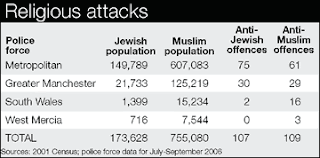What I am going to write in this post and others are notes towards answering a question that I have never been able to: how was it that so many intelligent, educated people, living in the most priveleged society ever known could defend for so long a regime (Soviet Russia) that was amongst the most murderous and backward in history? It is a question of more than historical interest because the mentality that defended Stalin's purges lives on today in the anti-Western tirades of so many members of the intelligensia. So many of the tropes and habits of mind that came to the surface then are still among us. It is a poison that has never been leeched.
These are, as I said, notes. They come principally from a book by Stephen Koch called Stalin, Willi Münzenberg and the Seduction of the Intellectuals. This book does not answer my question, but it does provide some excellent case studies of how the subjection of Western intellectuals was achieved in specific instances. I am going to describe three: The Sacco and Vanzetti trial and execution; the Reichstag fire; the Popular Front.
In 1925, the American Communist Party was in a mess - it needed rescuing. Not that Lenin or Stalin after him had any illusions about fomenting revolution across the Atlantic; they were far too busy at home and in Europe for that. However, the American Dream was the great mythical competitor to the soviet Working Man's Paradise and so there was the need to find and establish an anti-American cause and rhetoric that would "instill a reflexive loathing of the United States and its people as a prime tropism of left-wing enlightenment". They found a cause that would both revive the Party and sully the United States. Sacco and Vanzetti.
During a robbery in 1920, two men were killed by the robbers. Two Italian anarchists, Nicola Sacco and Bartolomeo Vanzetti were arrested, tried and condemned to death. Their anarchist comrades started a Defense Committee to finance the appeals and to make use of the case for propoganda, but by 1923 or so, the campaign had run out of steam.
Then Münzenberg got to work. It didn't matter that the condemned men were anarchists; what mattered was what could be done to reputation of the US by means of the slurs of racism and institutional injustice. A branch of Red Aid was set up in Chicago. Called the International Labor Defense, its prime task was to make the Sacco-Vanzetti case an international cause celebre. It did its task very well indeed.
Münzenberg had always seen the need to reach out far beyond the boundaries of the Party. The Soviet cause would be best served by those who, no matter how manipulated, were seen and saw themselves as 'independent'. He called them “innocents”, and this affair saw him reach out and gather them in their thousands both in the US and in Europe. Fund raising, meetings, propoganda, mass demonstrations, and bombings on both continents. Half a million dollars raised in the US alone ($6,000 of which reached the anarchist Defense Committee). Major cultural figures (the most useful innocents of all) got involved. In the US, Felix Frankfurter, later to sit on the Supreme Court, wrote a stinging denunciation of the trial in the Atlantic and so brought round many non-radicals to the cause and had a huge impact in Europe. HG Wells summarised the article and so set the tone among the right set here. He could not have known that Frankfurter's wife, Marion, had gained the almost constant companionship of a certain Gardner Jackson, who worked with Münzenberg's organisation at least until the War and whose charms, it seems, also led an infatuated Dorothy Parker to the Communist Party.
The success of the propoganda effort was very evident on the night of 22nd of August, 1927 - at midnight Nicola Sacco and Bartolomeo Vanzetti were executed. What followed was pandemonium - international grief and hysteria, like Lady Di, but with vandalism, barricades, looting (in Switzerland!), six deaths in Germany and the Red Flag sung outside Buckingham Palace.
Sacco and Vanzetti remains even today a cause and a rallying cry. I remember seeing an Italian film from the 70s or 80s which was, to say the least, impassioned and made you want to curse the people that put those two dignified men to death. I have said nothing about the presumed guilt or innocence of Sacco and Vanzetti because I don't think it really matters in this context. The point is the use that intelligent people could be put to by far more cynical ones, the terms on which the Russians had decided to fight the propoganda war, the use to which they could put the idealism of 'innocents', the way they could lassoo the West's own adversary culture to undermine it.
Katherine Anne Porter was a writer who joined the campaign for Sacco and Vanzetti. She was moved by their plight and hitched herself to the first group that came to hand. It was led by a woman who was anything but an innocent. They shared an exchange which, I think, epitomises the relationship between the innocent and the witting. I remarked to our Communist leader that even then, at that late time, I still hoped the lives of Sacco and Vanzetti might be saved and that they would be granted another trial. "Saved," she said, ringing a change on her favorite answer to political illiteracy, "who wants them saved? What earthly good would they do us alive?"
The first chapter of Stephen Koch's book was excerpted in the New Criterion. Katherine Anne Porter's memoir and Felix Frankfurter's paper are available to subscribers of the The Atlantic. There is more on the Sacco and Vanzetti case here and here. According to the second, new information on the case surfaced as recently as 2005.







